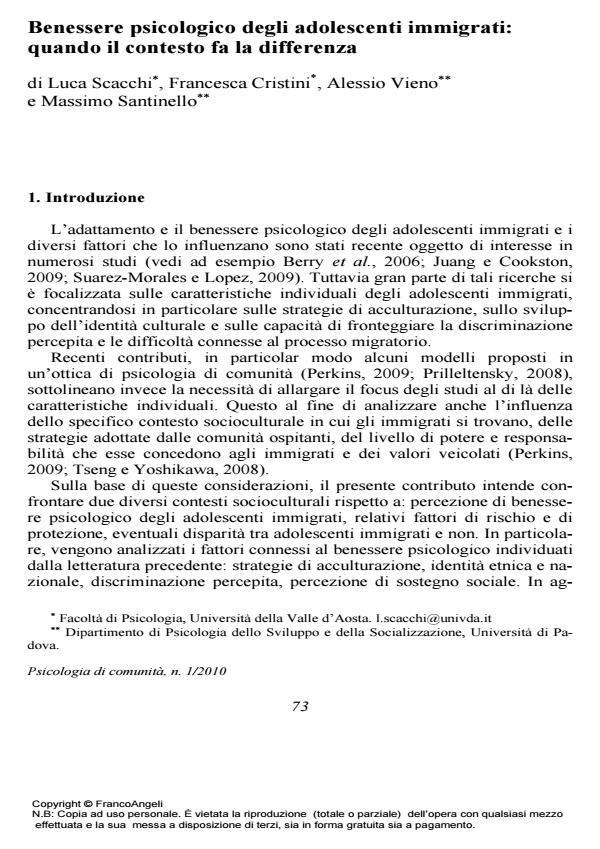Psychological well-being of immigrant adolescents: when the context "makes" the difference
Journal title PSICOLOGIA DI COMUNITA’
Author/s Luca Scacchi, Francesca Cristini, Alessia Vieno, Massimo Santinello
Publishing Year 2010 Issue 2010/1
Language Italian Pages 13 P. 73-85 File size 544 KB
DOI 10.3280/PSC2010-001007
DOI is like a bar code for intellectual property: to have more infomation
click here
Below, you can see the article first page
If you want to buy this article in PDF format, you can do it, following the instructions to buy download credits

FrancoAngeli is member of Publishers International Linking Association, Inc (PILA), a not-for-profit association which run the CrossRef service enabling links to and from online scholarly content.
The aim of the study was to compare two different sociocultural contexts with respect to integration and psychological well-being of immigrant adolescents. Two sociocultural contexts (Padova and Aosta) were characterized by different attitudes toward immigrants and different occupational and social engagement with immigrant population. Data for analysis come from a wider cross-sectional survey. A sample of 2533 students (66.7% males; mean age 17.26; SD=1.63) completed a questionnaire. 14.2% adolescents were 1st or 2nd generation immigrants. Results showed that immigrant adolescents in Aosta reported lower levels of perceived discrimination and higher levels of national identity than immigrant adolescents in Padova. Additionally, there was a larger disparity between immigrant and non immigrant adolescents in Padova than in Aosta. Disparity was reported in regards to family affluence, psychological well-being and peer support. Implications for the settlement of immigrant youth are discussed.
Keywords: Life context; immigration; adolescents; psychological wellbeing; integration; perceived discrimination.
Luca Scacchi, Francesca Cristini, Alessia Vieno, Massimo Santinello, Benessere psicologico degli adolescenti immigrati: quando il contesto fa la differenza in "PSICOLOGIA DI COMUNITA’" 1/2010, pp 73-85, DOI: 10.3280/PSC2010-001007